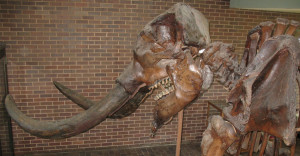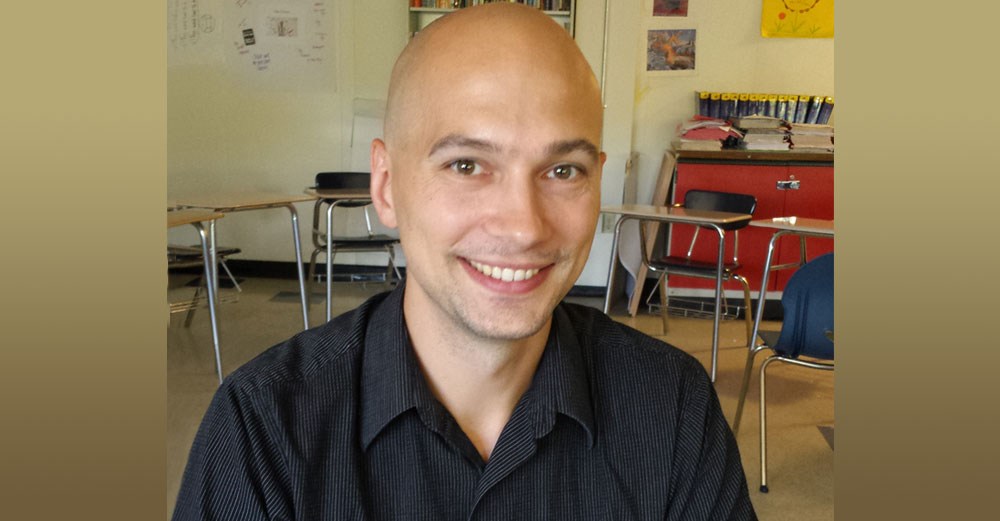
Brian Huskie’s academic career took a rather unorthodox path. In the middle of his English and Psychology undergraduate education at the University at Albany, he was called to do an active duty tour in Iraq as a National Guard infantry member. This event dramatically altered the course of his life as he was placed into a country where military conflict had been ongoing for many years.
During his early times in Iraq, he recalls a particular instance in which two Iraqi children came up to him and a fellow soldier on traffic control. The children wanted to bring the two men kabobs for triple their usual price. Huskie and his partner engaged the kids for a few minutes, teasing them and lighting matches for their amusement. The older of the two kids suggested that they trade a grenade for the kabobs. This, Huskie says, is when his fellow soldier pretended to throw a grenade.
“He didn’t even have it in his hand…it was in good fun…but the younger one ran (stumbled, really) into the weeds and started crying. He was bawling. He wouldn’t let anyone near him. I took off my helmet and gave up my gun and brought the kid a Gatorade. He whirled around and hugged me, and we hugged in the weeds for a long time. When I hug my four year old I sometimes feel that little Iraqi boy’s ribs. Then he showed me the scars on his leg. He had been burned from his ankle to his thigh. He was covered in scars. He made a machine gun noise, pointed to his leg, and said “Amerikee!” That was eleven years ago. If the kid is still alive, he’d be 18 or so.”
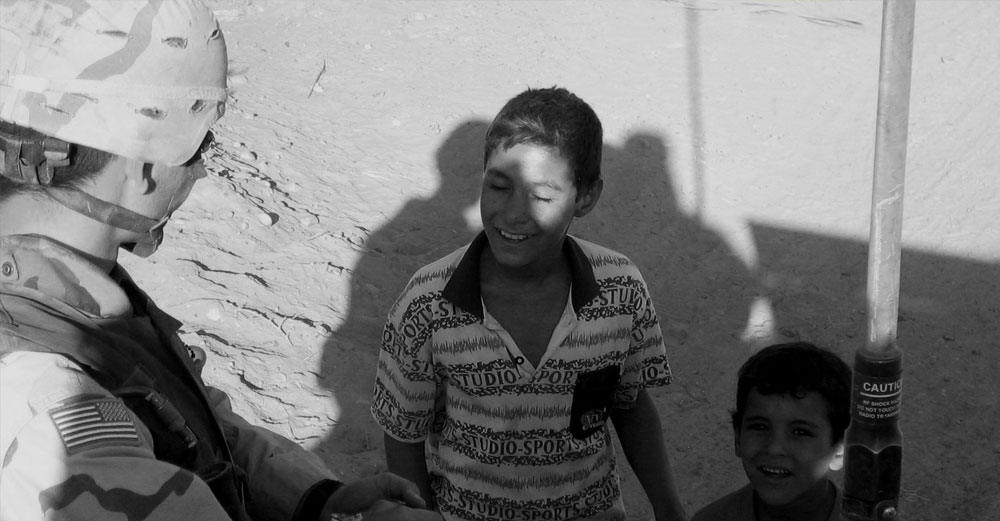
This memory, and others like it, have haunted Huskie in recent years and they have definitely changed the way he lives his life.
After a full year tour in Iraq, Huskie came back home to finish his college education. Less than a week after returning home from active duty, he found himself back inside a college class. He certainly found the experience to be jarring.
“It was just odd. Because like you really were in a war zone and you were fighting. You were in a whole different world and then you’re in a classroom. I felt almost like a secret agent because, I was just overseas and now I’m sitting next to this 19 year old, with like –well gauges weren’t a thing back then but– you know? …It did seem a little bit irrelevant –the school work, I mean– because I was just in a place where the stakes were so much greater. Final exams don’t seem like that big a deal for me anymore.”
The transition certainly posed its challenges. Even with PTSD symptoms such as a suddenly racing heart rate, Huskie worked hard to focus on his schoolwork and move on with the next phase of his life. He finished what was left of his undergraduate program in a year and applied for grad school, where he went to study Secondary Education.
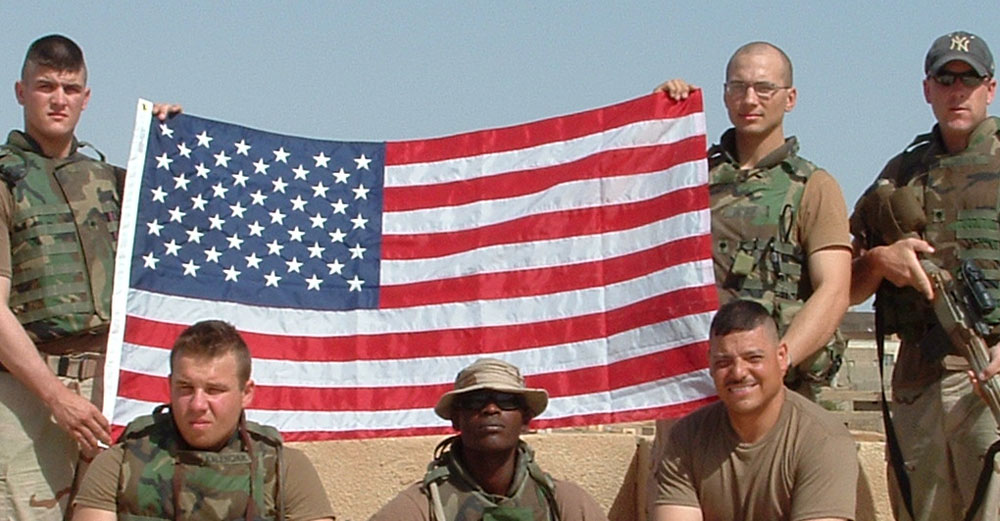
Transitioning From Conflict to Classroom
Now, this SUNY alum is a teacher at Albany High School, where he currently overseas three sections: 10th grade English, AP English, and English Language Learners. The English Language Learners class is comprised of a diverse group of children for whom English is not their first language. Among the students of this class are refugee students from Iraq, Burma, Nepal, and all over Africa. These refugee students had rough starts. Before coming to the US many of these students faced struggles even after leaving war zones, in their refugee camps. In some cases education costs the refugees money where it didn’t cost the citizens money. And sometimes they are not allowed to get jobs. In order to make ends meet these refugees would work illegally where they would find themselves under the threat of arrest. One girl in Huskie’s class fled from Somalia, and while she lived in her refugee camp she had difficulty going to school.
“When she was going back and forth to school, sometimes the police would arrest her and then hold her and call her parents. They would just say, ‘Hey, you have to pay some money to come get your kid’ and basically they were holding her ransom.”
And she wasn’t the only student to struggle. According to Huskie, the kids from Thai refugee camps weren’t given anything. These students had to make their own schools within the camps because they were forbidden to leave them. And yet the students who make it to Huskie’s classroom are in many ways the lucky ones. A very small percentage of all refugees get settled in a third country such as the US or Australia. And it is these students who inspired Huskie to start an endowment fund for refugees.
“Of all the people in the world who could have a chip on their shoulder and who could be the victims, they could be these people. But they don’t. And they say, I want to be a doctor, I want to be a nurse, I want to be an engineer, I want to give back to people, I want to help people. One girl said today she wants to work for some international organization to help refugees in the medical field. Another student, he wants to do music editing. So they have these pretty lofty dreams and they’re going to work towards it. And they are going to keep working towards it. If they don’t land exactly where they planned that’s one thing, but they are going to land on something for sure.”
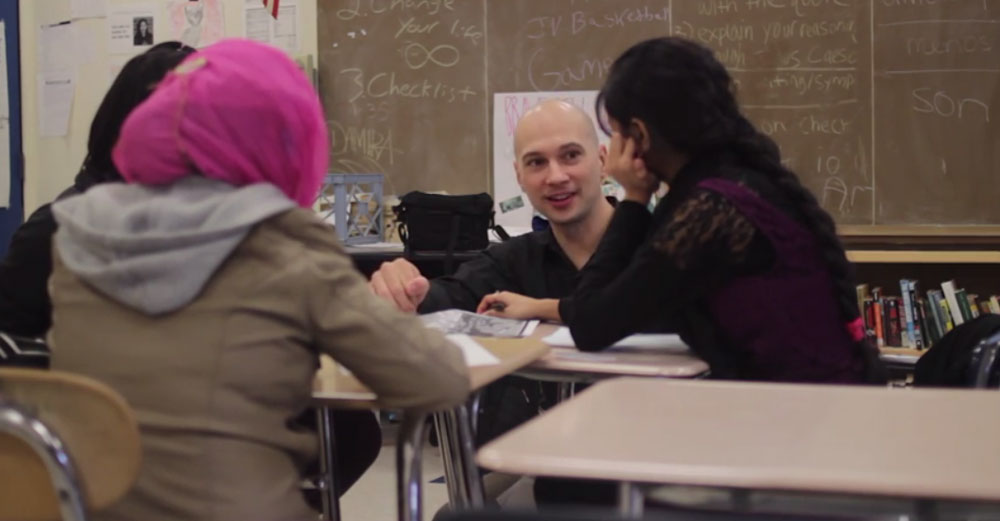
Many of these Refugee children came into the country with no money and in many cases they were separated from their families. Huskie says that he always found himself talking about these kids to his wife and decided it was time to stop talking about the problem and do something about it. Even if it is only in a small way, he wants to help these students find their way in the world. Huskie now teaches Iraqi refugees and he can’t help but think about the children he met while on military duty in Iraq. Those same kids would be about high school age now.
“I probably wouldn’t have done this if I didn’t have them in my class. If I had taken a different career, or if I was in the Albany district and I just didn’t have refugees, I can’t tell you where my mind would be. I don’t know if I would have swept it all under the rug. I don’t want to say that it’s in my face because I like it there but it’s– it’s present.”
If Huskie can raise $25,000 for the endowment fund then each year a scholarship will be granted by The University at Albany to help a refugee student attend college. He started an Indiegogo campaign to raise donations for the fund here. The Indiegogo campaign ends June 10th. And if you still wish to help these refugee children you can get involved in your own community by getting involved with the US Commitee for Refugees and Immigrants.
A man who spent years overseas serving for the US military and years educating the youth of New York, Brian has learned and experienced a lot through his still young life. What kind of advice he would someone with these experiences give to SUNY students if given the chance?
“I would say don’t wait for someone to give you permission to do something. Take initiative, take risks. Did you ever hear the story about the guy that did everything right and got everything right and he grew old? Nobody’s heard that story because it’s a horrible, terrible story. If you’re not failing, you’re not doing. You’re not pushing yourself. Education isn’t something that anyone can give to you. It’s something you have to take. It’s like eating food. If someone puts beautiful food in front of you, but if you don’t eat it, you’re going to stay hungry. If you’re not actually engaging in the activity that you want to master, you are never going to reach any kind of mastery. So get out there, start moving, start thinking. Don’t wait for someone to tell you it’s okay.”



